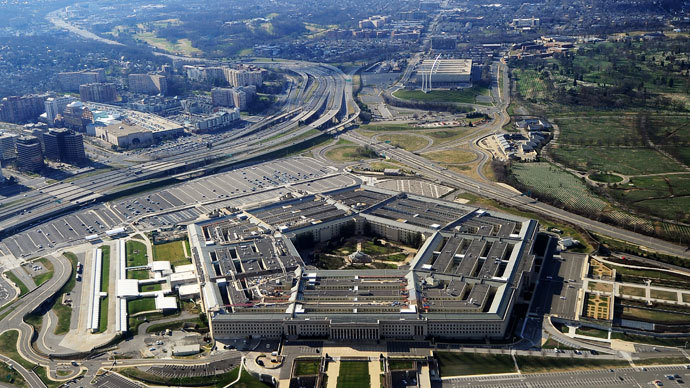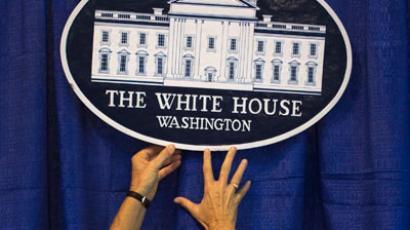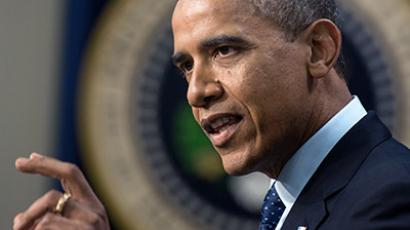Who does the US call an enemy? Pentagon won't say

US President Barack Obama has repeatedly said that Washington is at war with al-Qaeda, the Taliban, and its “associated forces.” However, the Pentagon refuses to disclose who those so-called “associated forces” really are.
At a hearing in May, Senator Carl Levin (D-Mich.) asked the US
Department of Defense to provide him with a list of al-Qaeda
affiliates. The Pentagon responded, but Levin’s office later told
ProPublica that it wasn’t allowed to share the information it had
received from Washington. When asked about the list, Levin’s
spokesperson only said that the department’s “answer included
the information requested.”
According to Pentagon spokesman Lt. Col. Jim Gregory, revealing the list could cause “serious damage to national security.”
“Because elements that might be considered ‘associated forces’ can build credibility by being listed as such by the United States, we have classified the list,” Gregory said. “We cannot afford to inflate these organizations that rely on violent extremist ideology to strengthen their ranks.”
After the September 11, 2001 terrorist attacks, President George
W. Bush signed the Authorization for Use of Military Force
(AUMF), which gives the green light to take on enemies deemed to
be “part of” al-Qaeda, the Taliban, or “associated forces.” And
while that power was reaffirmed and arguably expanded by the
National Defense Authorization Act of 2012, exactly who falls
into the “associated forces” category is a question that only the
most powerful people in America can answer.
President Obama most recently weighed in on the status of what
has become an open-ended war against terror during a national
defense speech given in Washington last May.
“Under domestic law, and international law, the United States
is at war with al Qaeda, the Taliban, and their associated
forces,” the president said. “We are at war with an
organization that right now would kill as many Americans as they
could if we did not stop them first. So this is a just war -- a
war waged proportionally, in last resort, and in
self-defense.”
During the May hearing, Assistant Secretary of Defense for
Special Operation and Low-Intensity Conflict, Michael Sheehan,
said he was “not sure there is a list per se,” adding that
“it would be difficult for the Congress to get involved in
trying to track the designation of which are the affiliate
forces” of al-Qaeda.
In an interview with ProPublica, Harvard law professor Jack
Goldsmith raised a question which was on the minds of many:
“If the organizations are ‘inflated’ enough to be targeted
with military force, why cannot they be mentioned publicly?”
he said.
In a blog post earlier this week, Goldsmith gave even more
insight into the issue.
“I suppose the idea, viewed charitably, is that being a named
enemy of the United States can spur recruitment and might enhance
the group’s interest in targeting US interests,” he wrote.
“Still, ‘inflating’ the enemy is a pretty soft criterion for
keeping its identity secret. After all, the premise of for
including a group on an AUMF list is that the AQ-associated force
is (in the Obama administration’s typical formulation) 'engaged
in hostilities against the United States,' and presumably
the fact of being on the receiving end of US or US-supported
military operations can be known locally and a spur to
recruitment regardless of USG acknowledgment.”
Goldsmith also says it’s peculiar that the president has no
problem identifying al-Qaeda as an enemy but is reluctant to
reveal much more.
“The fact that the ‘list’ is classified only at the secret
level suggests the perceived national security harms from
disclosure are not that high,” he wrote.
Rep. Adam Schiff (D-California) pushed for Congress to revoke the
AUMF after the last US troops are withdrawn from Afghanistan in
2014. However, the attempt to pass the amendment lost by a vote
of 185 to 236.














